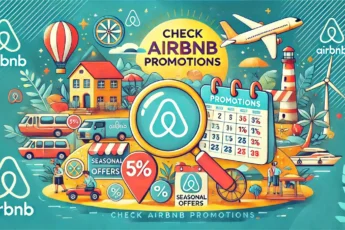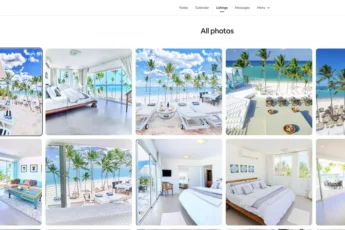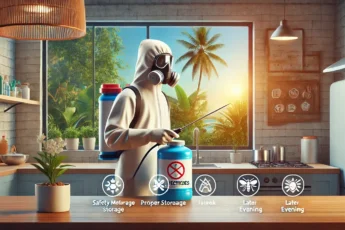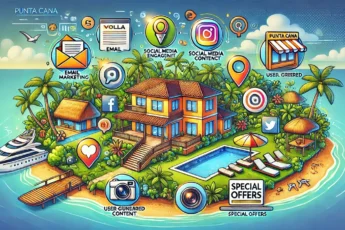Top 8 Crucial Hospitality Challenges in 2024 and Their Solutions
The hospitality industry is rapidly changing with many challenges that must be addressed. Let’s discuss their impact on the industry, what steps should be taken, what is important to pay attention to, and initiatives that need to be implemented for your business to succeed.
1. Technologies in hospitality: keeping up
with the latest innovations
From AI-powered chatbots to integrated systems for booking and reservations, businesses in the hospitality industry must stay abreast of the latest technological developments. These advances can help streamline internal processes, reducing manual labor while improving productivity and customer experience.
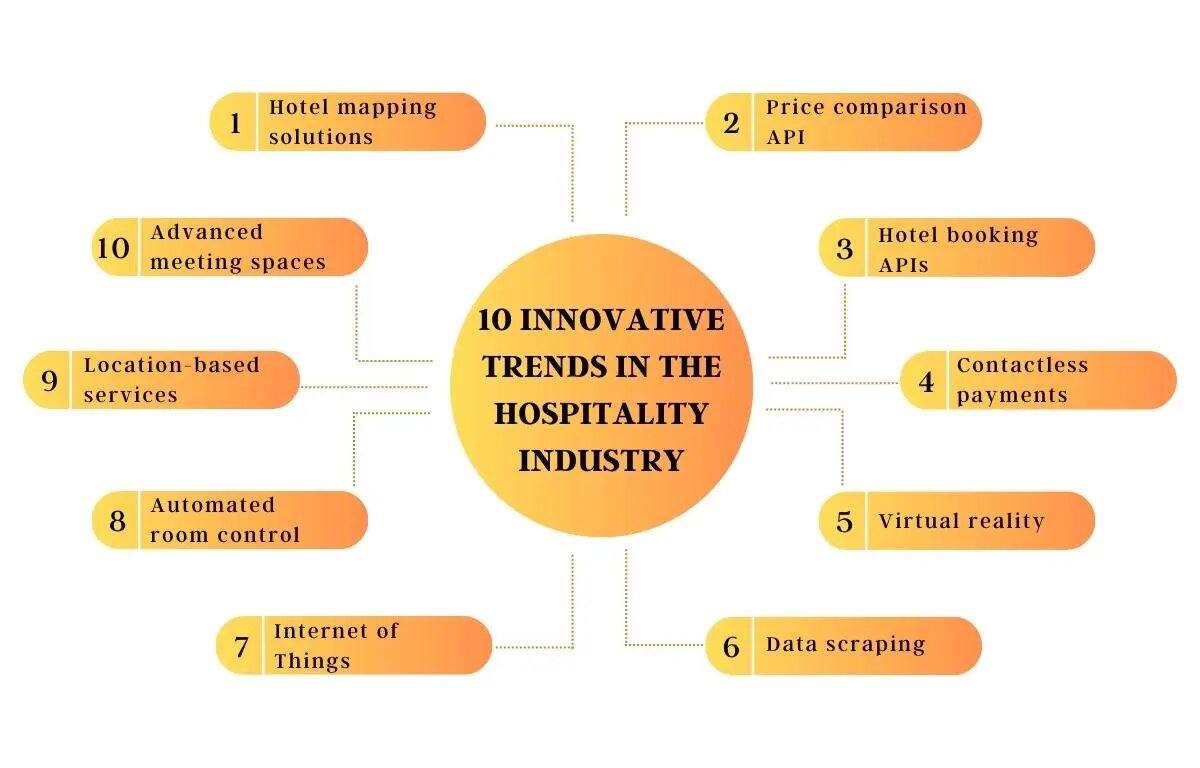
10 Must-Know Technology Innovations in the Hospitality Industry
As technology becomes ubiquitous, embracing its potential is key to staying competitive in the hospitality industry. Consider launching your own website development with payment gateway integration. This will make your hospitality business one step closer in a technological sense and an order of magnitude higher among competitors and in customers’ eyes.
2. Health and safety concerns
for hospitality workers
The hospitality industry is particularly vulnerable due to the close contact with guests and the array of workplace processes. Here is a list of some health and safety measures that are recommended for implementation:
- Personal protective equipment (PPE) such as gloves and masks;
- Cleaning and sanitizing high-touch surfaces such as door handles and tables;
- Proper ventilation in work areas to reduce heat stress and improve air quality;
- Non-toxic cleaning products and chemicals;
- Safety training for employees who use potentially hazardous equipment or chemicals;
- Developed emergency plans for fire or other accidents;
- Conducting regular risk assessments of the workplace;
- Proper lighting to prevent slips or falls;
- Encouraging hand hygiene and providing sanitizers for employees.
Considering the above, hospitality businesses can create a safe workplace environment for their employees while protecting their customers or guests from potential harm.
3. Hospitality industry and its impact on
social media
Despite the advantages, social media poses various challenges for business owners. The 24/7 nature of their operations means companies must constantly be on their guard for negative reviews and customer feedback. This can have an immediate and potentially damaging effect on a business’s reputation.
Social media challenges and solutions for hospitality businesses
| Platform | Negative Impact | Potential Results | Ways of Avoiding |
|---|---|---|---|
| Negative reviews, comments or posts by customers, fake news or misinformation, hacked accounts | Decreased customer trust, loss of business, damaged reputation | Check channels regularly, respond promptly and professionally to negative feedback, report harmful/fake content, and secure the account with strong passwords and two-factor authentication. | |
| Negative tweets or mentions, customer complaints or feedback, trolling or harassment | Negative publicity, damage to brand reputation, decreased customer trust and loyalty | Managing a business’s Twitter presence involves monitoring and responding to negative tweets, tracking mentions and keywords, and reporting/blocking abusive accounts. | |
| Negative comments or reviews, fake followers or engagement, influencer fraud | Decreased credibility, loss of potential customers, decreased ROI | Check comments and direct messages, respond to negative feedback in a timely manner, report any suspicious accounts or activity, carefully vet influencers and monitor their content and engagement. | |
| YouTube | Negative comments or reviews, inappropriate or harmful content, copyright infringement | Damage to brand image, decreased visibility and engagement, potential legal issues | Moderate comments, flag inappropriate content, report copyright infringement, monitor channel analytics for negative trends/feedback, and share high-quality content to counter negativity. |
| Negative posts or comments, unprofessional behavior by employees, data breaches or security issues | Decreased credibility, damage to professional reputation, potential legal or financial consequences | Monitor employee activity, establish clear guidelines/policies, provide social media training, and secure accounts/data with strong passwords and security measures. |
All hospitality businesses should explore social media to maximize their reach in today’s market. A strong presence on social media platforms is critical for engaging customers and keeping their interest—so ensure you’re prepared!
4. The growing importance of sustainability
The hospitality industry is a significant contributor to environmental pollution. However, increasing public awareness has pressured it to become more sustainable. The survey of Luggage Hero clearly shows that 87% of travelers want to travel more sustainably.
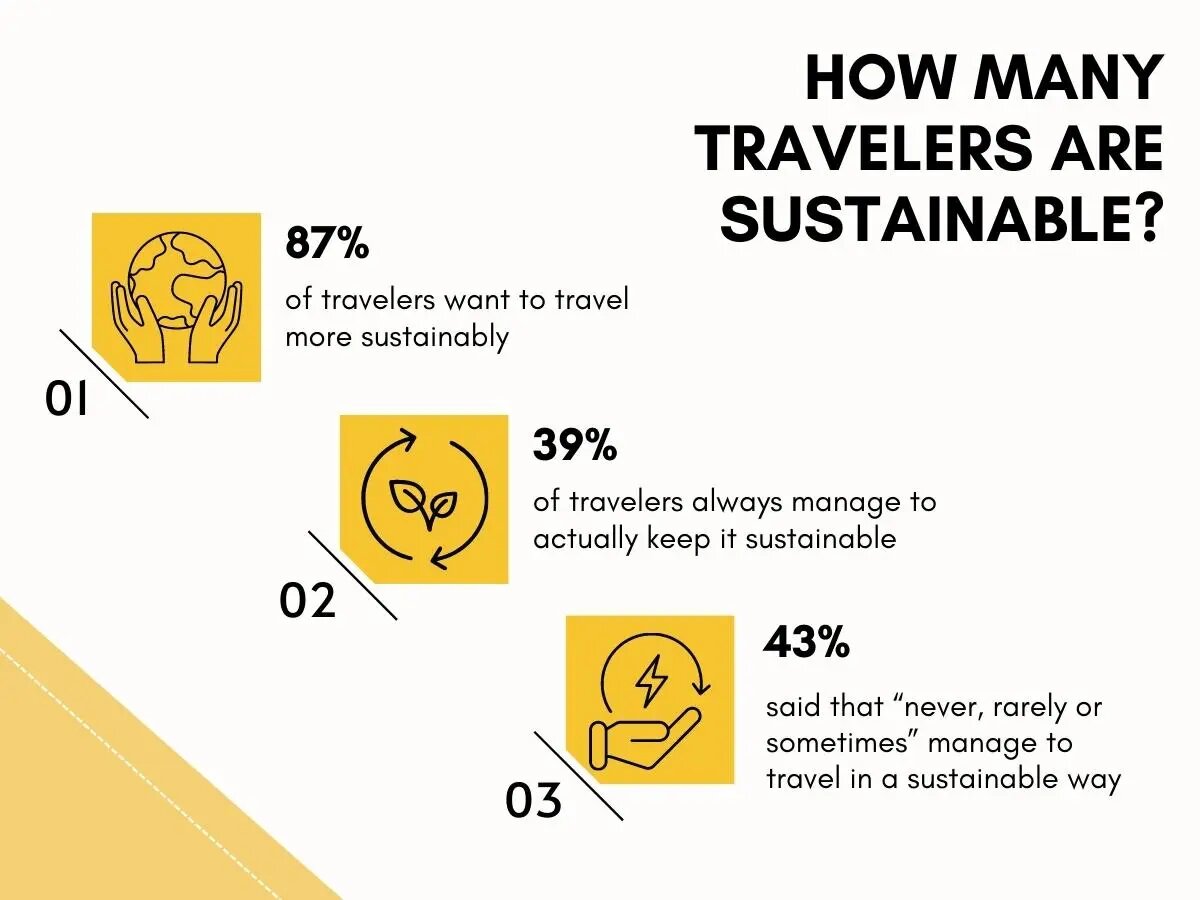
Number of sustainable travelers
So, there is still room for growth in developing the eco-friendly and sustainable hospitality industry. Here are a few key strategies to follow:
- Investing in renewable energy sources such as solar and wind power;
- Utilizing green building materials such as bamboo and recycled materials for construction and furnishing;
- Offering guests to buy sustainable products such as organic foods, eco-friendly toiletries or reusable water bottles;
- Implementing green cleaning practices that minimize the use of harsh chemicals and maximize efficiency in water usage;
- Offering guests the option to go paperless when booking services or checking out from the hotel or restaurant.
By taking steps towards sustainability, hospitality businesses will not only be able to reduce their carbon footprint but also save money in the long run by utilizing more efficient technologies.
5. Labor shortages in the hospitality industry
Finding and keeping qualified staff is crucial in the hospitality sector. To help combat labor shortages, businesses must ensure their workplace is attractive to potential employees:
- Offering competitive wages and benefits packages such as health insurance, retirement savings plans, paid time off, and other perks like employee discounts, can attract top talent and distinguish a business from competitors.
- Create a flexible work environment. Part-time or remote work arrangements can help attract a wider pool of candidates and improve employee satisfaction.
- Foster a positive work culture. Make your employees feel valued and motivated to stay with you. This may include opportunities for professional development, regular feedback and recognition, and team-building activities.
- Develop training and career development programs: Invest in building employees’ skills and advancing within the company. It can increase job satisfaction and reduce turnover.
- Streamline hiring processes: Simplifying and expediting it can help businesses attract and secure top talent before accepting competitors’ offers.
6. Rising competition in the hospitality
Greater emphasis on experiences and customer service means businesses must work harder to differentiate themselves from competitors. So it is essential to be aware of both direct and indirect competition.
Examples of direct and indirect competition for hospitality businesses
| Type of Competition | Direct Competitors | Indirect Competitors |
|---|---|---|
| Examples | Other hotels in the same geographical area | Airbnb, vacation rentals, hostels, motels, campgrounds, timeshares, home-sharing platforms, travel agencies |
| Product/Service | Similar lodging accommodations | Alternative lodging that can fulfill the same customer needs |
| Features | Room rates, amenities, location, brand reputation | Price, convenience, unique experiences, customer reviews, trust and safety |
Hospitality companies must create unique experiences to help set a business apart. If you are stuck with this issue, you can use our consultation services from experts with 10+ years of experience and find a solution instantly.
7. Preparing for the digital transformation
of the hospitality
The industry must stay abreast of the trends and invest in digital solutions. This can range from leveraging AI for customer service and personalized offerings to investing in mobile applications and other digital infrastructure. Consider these points:
- Analyze your customers’ digital behavior. Understanding what your customers want today and what they may need in the future. Look closely at their behavior when engaging with your brand online and use this data to craft a better experience.
- Invest in robust technology. Investing in it is necessary for initial setup, maintenance, and upkeep. Research all options before choosing a technology that best suits your budget and needs.
- Adapt strategically. As technology changes, so should your strategy for using it effectively. Regularly assess how well you leverage these tools to ensure you are seen as modern and relevant in an ever-changing landscape.
By taking these steps, you can confidently prepare for the digital transformation of the hospitality industry — setting yourself up for success now and in the future.
8. Embracing maintenance 5.0 into
the hospitality industry
As the hospitality industry’s demands evolve, many industry leaders are turning to Maintenance 5.0, a web-based maintenance management system that acts as an integrated platform to streamline processes and help businesses increase efficiency.
Maintenance 5.0 applications in the hospitality industry
| Maintenance 5.0 | How to use |
|---|---|
| Predictive maintenance | Prevent equipment failure in hospitality establishments, such as HVAC systems, elevators, and kitchen equipment, to optimize guest experience and minimize downtime. |
| Condition-based maintenance | Monitor equipment and assets to determine optimal maintenance time, such as replacing a carpet or light bulb before visible wear or burnout. |
| Augmented Reality (AR) | AR technology for remote training and maintenance of hospitality equipment, such as kitchen appliances, housekeeping equipment, and laundry machinery. |
| Internet of Things (IoT) | Leveraging IoT sensors to monitor energy usage, occupancy rates, and other data points to optimize efficiency and reduce costs in hospitality establishments like hotels, resorts, and conference centers. |
| Robotics and Automation | Robotics and automation to perform routine maintenance tasks in hospitality establishments, such as cleaning and restocking supplies, freeing up staff to focus on the guest experience. |
With Maintenance 5.0, it is easier to address the challenges. You can quickly identify potential problems, prioritize repairs, and establish preventive maintenance programs that turn challenges into opportunities.
Conclusion
To thrive in the competitive hospitality industry, businesses must stay up-to-date on industry trends and challenges. By staying agile and adaptable to evolving customer expectations and technological advancements, professionals can ensure a prosperous future for the industry.
Frequently Asked Questions
Related to the Hospitality Industry Challenges
1. What are three issues in the hospitality industry?
There are many issues that the hospitality industry faces, but here are three common ones:
- Labor Shortages: The industry faces a staff shortage, leading to lower-quality service and higher staff turnover rates.
- Online Reviews: Customers have the power to influence a business’s reputation through online reviews, making managing feedback crucial for businesses.
- Sustainability: Heavy use of resources in the hospitality industry contributes to environmental degradation, and businesses that do not address sustainability concerns risk losing customers and damaging their reputation.
2. What is the biggest issues and challenges faced by the tourism and hospitality industry?
The biggest challenge facing the tourism and hospitality industry is the COVID-19 pandemic. Other ongoing challenges include sustainability, digitalization, changing consumer preferences, labor shortage, and some regions’ political instability/security concerns.
3. What are the 7 critical risks facing the hospitality industry?
While there may be various critical risks facing the hospitality industry, here are seven common ones:
- Economic Fluctuations: The industry is vulnerable to economic downturns, leading to reduced travel and revenues.
- Natural Disasters: Disruptions and property damage can occur due to natural disasters.
- Cybersecurity: Businesses are vulnerable to cyber attacks that can lead to data breaches and financial losses.
- Regulatory Compliance: Compliance with regulations is necessary in areas such as health and safety, labor laws, and the environment.
- Reputation Management: Negative publicity or reviews can damage a business’s reputation and decrease bookings.
- Geopolitical Risks: Political instability, terrorism, and security concerns in some regions can lead to decreased bookings and revenues.
- Health and Safety: Businesses must implement strict health and safety protocols, including for COVID-19, food safety, and the spread of infectious diseases.
4. What are the challenges faced by tourism industry?
The tourism industry faces a range of challenges, including:
- COVID-19 Pandemic;
- Sustainability;
- Digitalization;
- Changing Consumer Preferences;
- Safety and Security;
- Political Instability;
- Economic Fluctuations;
- Infrastructure;
- Talent Shortage.
5. What is the biggest challenge in hospitality?
The biggest challenge in hospitality at present is the COVID-19 pandemic, which has caused a significant decline in travel and tourism, leading to revenue losses for businesses, as well as operational challenges due to new safety and health protocols.
6. What are the international issues in hospitality?
Some of the international issues in hospitality include:
- Travel restrictions and visa policies;
- Political instability and conflicts;
- Cultural differences;
- Global economic trends;
- Sustainable tourism;
- Labor laws and employment practices;
- Global health issues like the COVID-19 pandemic.
7. What are the weaknesses in hospitality industry?
The weaknesses in the hospitality industry include dependence on external factors, high competition, seasonal demand, high labor costs, high initial investment, technological challenges, and sustainability issues.
It perfectly demonstrates the need for businesses to continually adapt and evolve to changing market conditions. By focusing on customer needs, implementing sustainable practices, and investing in technology, hospitality businesses can better position themselves for long-term success.
8. What is problem solving in hospitality industry?
Problem-solving in the hospitality industry involves identifying and addressing challenges and issues while providing services to guests. Some common problems that may arise in the hospitality industry include guest complaints, staffing issues, equipment failures, supply chain disruptions, and financial challenges.
9. What are the big five in hospitality?
The “Big Five” in hospitality refers to the five major segments of the hospitality industry, which are:
- Lodging;
- Food and Beverage;
- Travel and Tourism;
- Entertainment;
- Recreation.
These five segments are interdependent and work together to provide an overall experience for customers. Each segment presents unique challenges and opportunities for businesses, and success in the hospitality industry often involves effectively managing all five segments.
10. What are the negative impacts of hospitality?
The hospitality industry can negatively impact the environment, society, and economy. Here are some of them:
- Environmental impact. Environmental degradation, such as waste generation, water and energy consumption, and greenhouse gas emissions;
- Cultural impact. The rapid growth of tourism and hospitality can lead to cultural commodification, loss of authenticity, and cultural clashes.
- Social impact. Social issues such as overcrowding, labor exploitation, and gentrification.
- Economic impact. The hospitality industry may create economic imbalances by driving up prices and creating wealth disparities between local communities and tourists.
- Health impact. Hospitality can pose health risks, such as the spread of diseases, food poisoning, and accidents.
It is important for the hospitality industry to recognize and address these negative impacts by implementing sustainable practices, respecting local cultures and communities, providing fair labor conditions, and prioritizing the health and safety of guests and employees.
11. What are the pros and cons of hospitality?
Here are main pros and cons of the hospitality industry:
| Pros | Cons |
|---|---|
| Employment opportunities | Seasonal demand |
| Economic benefits | High turnover rates |
| Personal interaction | Workload and stress |
| Flexibility | Customer complaints |
| Opportunities for creativity | Financial challenges |
The hospitality industry has many benefits. However, some challenges may arise. They can be effectively addressed by management and strategic planning.
Updated on: . Author:

